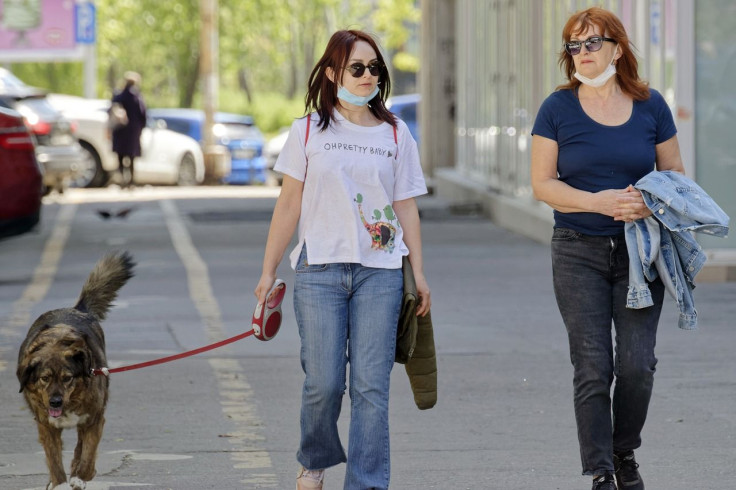Coronavirus Update: Expert Reveals Risk Of Infection Is 30 Times Higher At 1-Meter Distance
KEY POINTS
- UK expert said the risk of getting infected by a COVID-19 positive person is very high at 1-meter distance
- The risk of spread is at 30 times higher than when maintaining a 2-meter distance
- Maintaining the 2-meter distance between individuals must be strictly observed
Standing a meter away next to a person infected with coronavirus increases your risk of getting the infection by at least 30 times. This is what the UK government’s chief scientific adviser revealed when asked by the health and social care committee in the House of Commons.
Two-Meter Social Distancing Guideline
Sir Patrick Vallance, the chief scientific adviser for the government, underscored the importance of strictly observing and adhering to the two-meter social distancing guidelines recommended by the government during the lockdown. Keeping this distance takes effort but the government is thankful that supermarkets and essential shops have been following the recommended guidelines.
Vallance also pointed out that the risk of outdoor transmission is “really low.” In a meeting with the MPs on Tuesday, he mentioned that the two-meter distancing was rooted in a probability. He made it clear that standing two meters from a coronavirus patient for one minute exposes an individual to the same infection risk as standing a meter apart at six seconds.
“The risk at one meter is about 10 to 30 times higher than the risk at two meters, so distancing is an important part of this,” the government adviser added.

Role Of Face Coverings
In addition to discussions on social distancing, Vallance also told the MPs that face coverings “may play a role” in situations where the two-meter distancing may not be possible. He admitted, however, being skeptical about the evidence provided on face coverings. These masks may have a role during instances where social distancing may be impractical or just downright impossible, an example of which would be undue crowding.
There may be situations when wearing face coverings can be helpful to stop the spread, emphasizing that such face coverings should completely cover the mouth and nose. Accordingly, it is important that people remember not to touch their faces a lot since there is a high risk of transmission from hand to face. As regards research on face coverings, however, Vallance said, “the evidence gets even weaker in terms of any positive effect.”
A Political Decision
Vallance stated that many theoretical reasons have been laid out as to why wearing face coverings may make a difference. He said that, in trials conducted on the matter, it is hard to see any considerable effect.
In the end, Vallance noted that whether or not the government will make the wearing of mask mandatory is a decision that will be made by political leaders. Boris Johnson, on Thursday, hinted the government might make the wearing of face coverings mandatory as part of the conditions for easing the country’s lockdown.
© Copyright IBTimes 2024. All rights reserved.





















